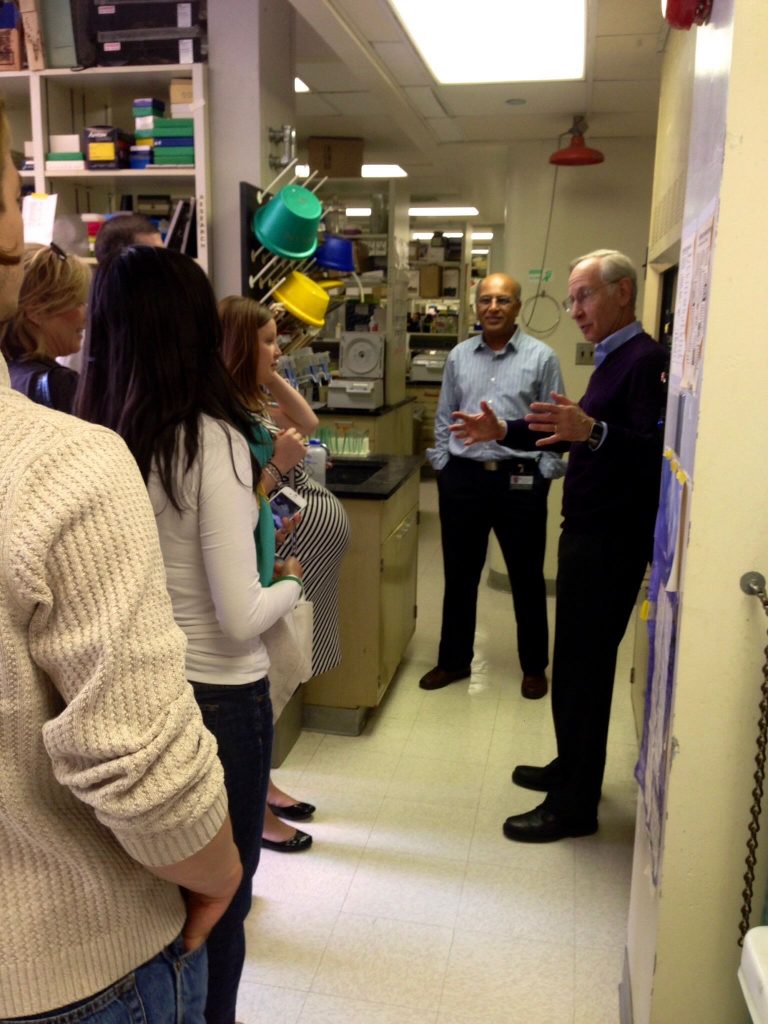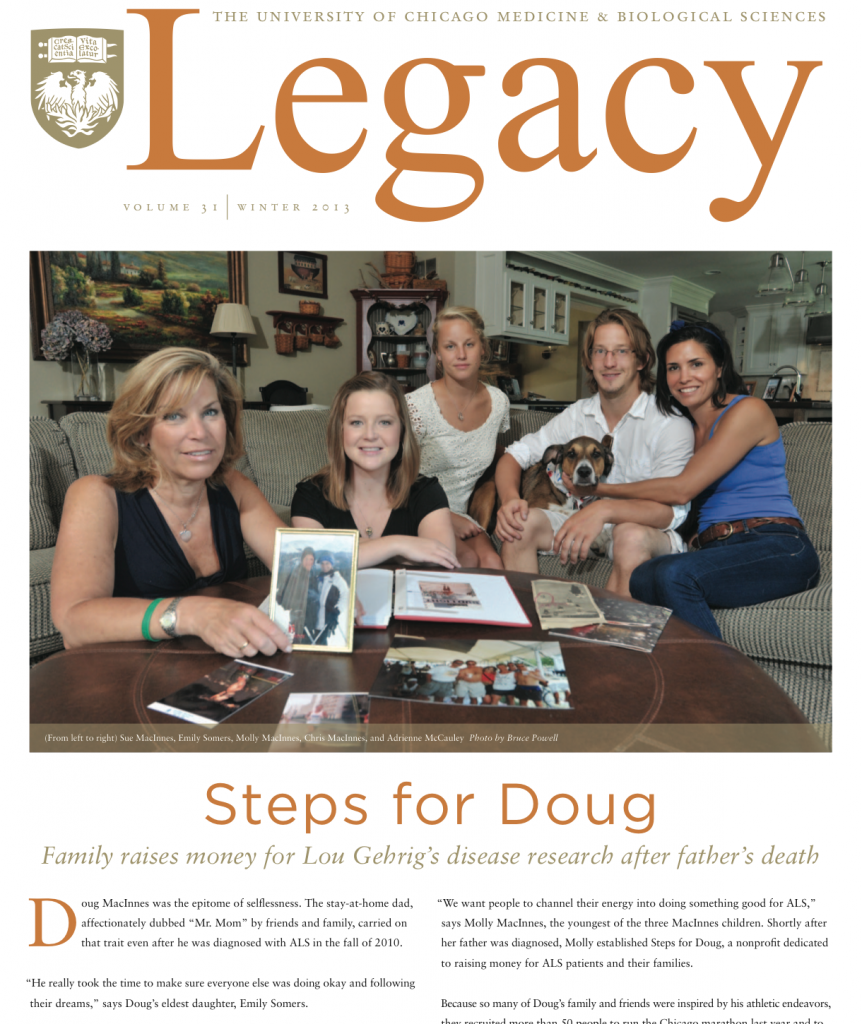
Before the ALS Ice Bucket Challenge, very little was publicly known about ALS. Year after year, this debilitating disease continues to affect more and more families. ALS can be an extremely ruthless disease to battle for patients and their families. With minimal treatment options and no cure, it is imperative to invest in research and development to better understand this disease.
Dr. Raymond Roos of the University of Chicago has dedicated his career to ALS and other neurodegenerative disease research. He is also a physician with a comforting bedside manner that made Doug feel heard and respected as a patient. Steps for Doug believes in the work and dedication of Dr. Roos. As a result, throughout its history Steps for Doug has donated over $100,000 to Dr. Roos at his University of Chicago ALS Research Lab. Steps for Doug continues to partner with him to further develop ALS treatment options for those currently living with ALS. He has committed his life to creating better outcomes for ALS patients through research.
Specific Focus
- The Unfolded Protein Response (UPR) as a therapeutic target in ALS– During normal protein synthesis, some proteins get inadvertently misfolded, and this leads to ER stress. The ER stress triggers a normal cellular UPR that degrades the misfolded proteins. Many inherited neurodegenerative diseases, including ALS, are thought to be caused by mutations in certain key proteins (such as SOD1 in the case of ALS) that are toxic because they misfold and aggregate (clump). It is thought that oxidative stress can cause misfolding of these same proteins (e.g., SOD1), even in their non-mutated state, and lead to a non-inherited form of the neurodegenerative diseases (i.e., sporadic ALS). We tested whether the UPR is overwhelmed in SOD1-induced ALS leading to death of the cell and disease by investigating transgenic mice that express a mutant SOD1 gene (leading to ALS). W We found that weakening the UPR in these mice leads to an acceleration in disease with decreased survival, while enhancing the UPR causes a remarkable amelioration of disease and increased survival. We are now involved in preparing molecular tools that can be used to enhance the UPR. These tools could be a potentially effective treatment in ALS and other neurodegenerative diseases.
- Anti-mutant SOD1 single chain antibodies (scFvs) as a treatment in ALS – We isolated scFvs against mutant SOD1. We have prepared a virus vector that expresses the scFvs, and are now testing whether these scFvs will ameliorate disease in mutant SOD1 transgenic mice. Some investigators believe that non-inherited ALS has evidence of abnormalities of SOD1 that are similar to that found in mutant SOD1-induced ALS, suggesting that these scFvs may be potentially effective in non-inherited as well as inherited ALS.
- Palmitoylation of SOD1 as a potential biomarker of ALS – We recently found that mutant SOD1 has increased palmitoylation, a modification that is put on certain proteins by the cell. The enhanced palmitoylation may be important in causing the toxicity that results from expression of mutant SOD1. We are presently examining blood and tissues from non-inherited ALS patients to determine whether the increased palmitoylation is present in these cases as well. If this is the case, then palmitoylation of SOD1 may provide a biomarker for screening of patients who are thought to have ALS .

